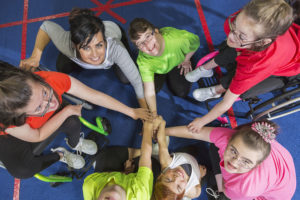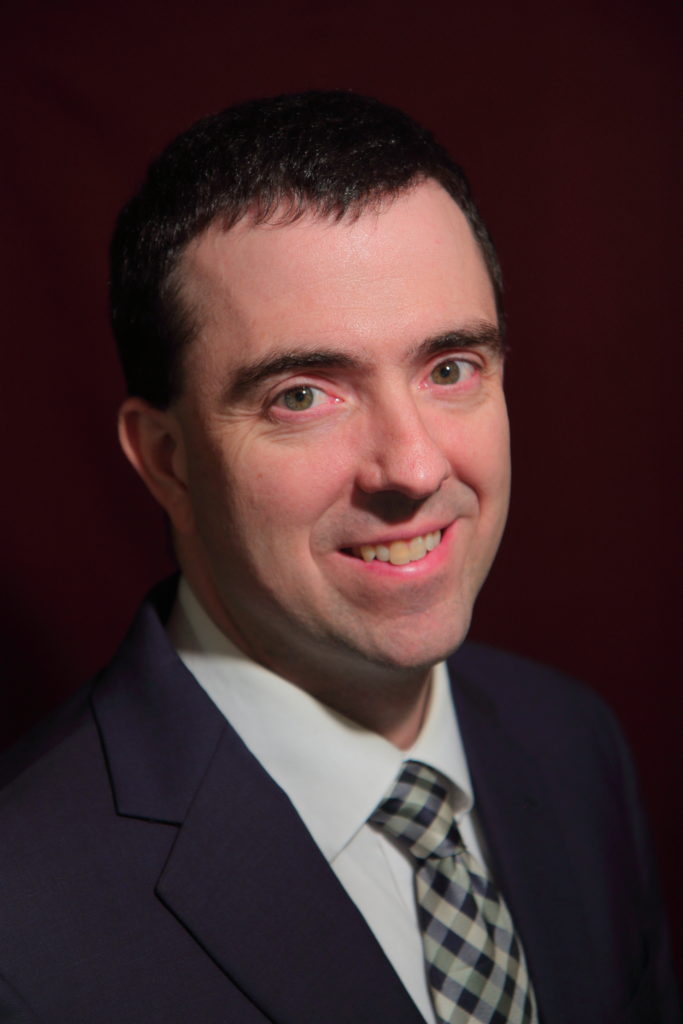Establishing a culture of inclusion across the building and beyond the classroom not only benefits the students being included, it also helps build a positive culture for everyone in the school community. As is typical in most schools, we’ve worked to maximize the inclusion opportunities for our students with developmental disabilities. Over the last several years, we’ve been able to expand beyond the academic program and into other areas around the school by starting off relatively small and expanding into clubs, athletics, and other activities.
We began by having students support the special education programs as peer mentors or teachers’ aides. Building on these successes, we started participating in national campaigns like “Spread the Word to End the Word” and having students sign pledges during lunch periods. This simple activity alone helped establish relationships between students with developmental disabilities and their nondisabled peers. Although these relationships began by sitting at tables and recording signatures in the cafeteria, the students carried these connections across the building. Students would walk with each other to class, sit with each other during assemblies, and generally strike up conversations whenever the chance arose.
Again leveraging this success, we created a Unified Schools club. We were fortunate to have students and staff willing and able to participate in the Maine Special Olympics Youth Activation Counsel. This group brought together students, teachers, and advocates from across the state and allowed our students to access and share resources focused on implementing inclusion activities in our building and community. We also utilized these resources to help us develop our inclusion program so that we could potentially be recognized as a Unified Champion School by the Special Olympics. Fortunately, the hard work by our students on the Youth Activation Counsel and our Unified Schools club paid off, we were able to meet the criteria, and we became the first high school in Maine to be named a National Unified Champion School.

At the same time all this work was happening, we also began to expand our offerings of unified sports, which provide opportunities for students with developmental disabilities to compete on a team with their nondisabled peers. Our Unified Schools club has been on the cutting edge of unified sports. Initially, we worked with neighboring schools to organize a bocce tournament each spring. It’s not uncommon to see up to 10 bocce courts set up on our athletic fields with teams from several neighboring school districts. We’ve also participated in unified bowling and snowshoeing. Regardless of the activity, students had such a positive experience that when I was approached by our state principals’ association to serve on the Unified Sports Committee to work with other principals, athletic directors, and representatives from Maine Special Olympics to investigate activities that might be offered at a competitive level, I jumped at the chance. The unified sports committee of the Maine Principals’ Association has proven to be one of the most rewarding committees on which I’ve had the opportunity to serve. Working with a group of like-minded individuals with the sole purpose of increasing opportunities for students with developmental disabilities is a great way to spend time.
One of our school’s most successful programs has been unified basketball. We were one of the first schools in the state to field a team and have proudly participated every year for the last five years. The team is recognized as a varsity sport and is run the same as our more traditional winter activities—or mostly the same. There is a definite difference when watching the students play. The same could be said for the other unified activities—whether it’s the “End the Word” or “Spread the Word of Inclusion” campaigns, peer mentors in class, bocce, or basketball, students are engaged and having fun.
Our experience with inclusion activities has been overwhelmingly positive. I would encourage any school to seek out opportunities to expand inclusion activities. We found a valuable resource in our local chapter of Special Olympics. We started small and saw the positive impacts almost immediately. If you are interested in expanding opportunities in your school, reaching out to your local Special Olympics organization would be a great first step.

